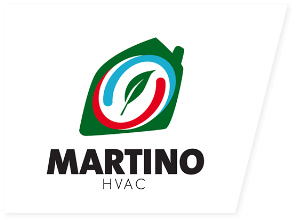You may have noticed your gas bills increase significantly in January 2023 from the prior month. While some of this is related to the colder weather and increase in consumption, it also is because the price of gas has gone up from $0.18 to $0.32 per cubic meter from January 2022 to January 2023 and the increase in carbon tax for using natural gas in your home. In order to meet the country’s climate initiatives, the government is planning to move homeowners off of natural gas and into electric alternatives, such as hybrid and heat pump systems. Click here to read how you can receive up to $6,500 from the Greener Homes Rebate.
The Greener Homes Grant was introduced in 2022 from the Canadian government to help Canadians make where they live more energy efficient. It will help homeowners save money on purchasing energy efficient upgrades, lower their energy consumption and greenhouse gas emissions, and help fight climate change.
A few weeks ago, the government increased the rebate from $5000 to $6500 for installing a qualifying heat pump and furnace system, as well as offering 0% financing to help homeowners pay for these systems.
What is a Heat Pump?
A heat pump is essentially an air conditioner that does heating and cooling. It is installed very similarly to how your current air conditioner is installed. It will work just the same during the warmer months to cool your home, but it is also able to provide heating down to a certain temperature in the winter months.
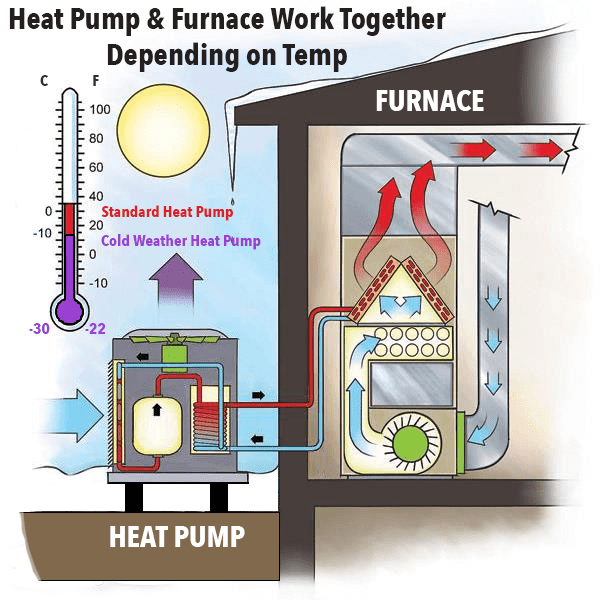
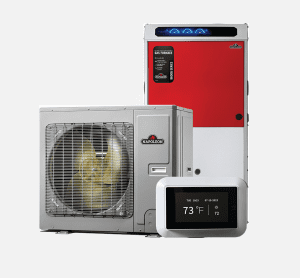
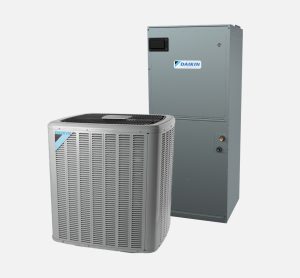
What makes a heat pump so energy efficient at heating is their Coefficient of Performance (COP). The COP refers to how much heat it can generate based on the amount of power it consumes. So for example, if we think of an electric furnace and the cost for 1 kilowatt of heat is $1, the heat pump will produce that same 1 kilowatt of heat for $0.25. This is because heat pumps have a COP of up to 4 which means they can produce the same amount of heat for much less energy.
As the temperature outside gets colder, the COP will decrease making them less efficient. There are two types of heat pumps; standard heat pumps and cold climate heat pumps. Standard heat pumps can heat down to -10 C and cold climate heat pumps can heat down to -30 C. Even though they can heat to these temperatures, they will not provide enough heat to keep your home warm and at the set point on your thermostat. Therefore, in practice, a standard heat pump typically provides efficient heating that can keep your home comfortable to approximately -5 C and cold climate heat pumps provide efficient heating down to approximately -15 C.
Once the temperature drops below this, your back up gas or electric furnace will need to kick in. If you don’t have ductwork and have baseboard heat, we can install ductless heat pumps that mount on the wall and then your baseboards will remain as the back up heat source.
Click here to see various Heat Pump & Furnace combinations eligible for government rebates.
The Benefits of Home Heat Pumps
Home heat pumps are an efficient, cost-effective way to keep your home comfortable all year round. Not only do they provide reliable heating and cooling, but they can also help you save money on energy bills as well. Here are some of the many benefits of home heat pumps:
Energy Efficiency
Heat pumps have a much higher efficiency than other types of heating and cooling systems, meaning they use less energy to produce the same amount of heat or cool air. This leads to lower energy costs over time and fewer emissions from climate-changing gases.
Cost Savings
As mentioned above, heat pumps are highly efficient and use less energy than other systems. This helps you reduce energy costs significantly in the long run. Additionally, installing a heat pump is a larger initial investment than most traditional HVAC systems, but this is mitigated by the Greener Homes Government Grant. Over the long-run however, heat pumps will pay for themselves by saving you money each month.
Versatility
Heat pumps are perfect for both warm and cold climates since they can switch between heating and cooling modes quickly and easily. Additionally, they offer zoned temperature control throughout your home, so you can maintain different temperatures in different rooms.
Quiet Operation
Heat pumps are quieter than traditional systems both in their indoor and outdoor noise levels. They have inverter/variable compressors that are extremely quiet, so much so you almost can’t even hear them running.
Also, these systems tend to run at a lower capacity for a longer period of time to increase comfort, reduce energy costs, and remain quieter indoors when they are running.
Heat pumps offer numerous advantages for keeping your home comfortable all year round while also saving money on energy bills and reducing carbon emissions. If you’re looking for an efficient, cost-effective heating and cooling system for your home, consider investing in a heat pump today!
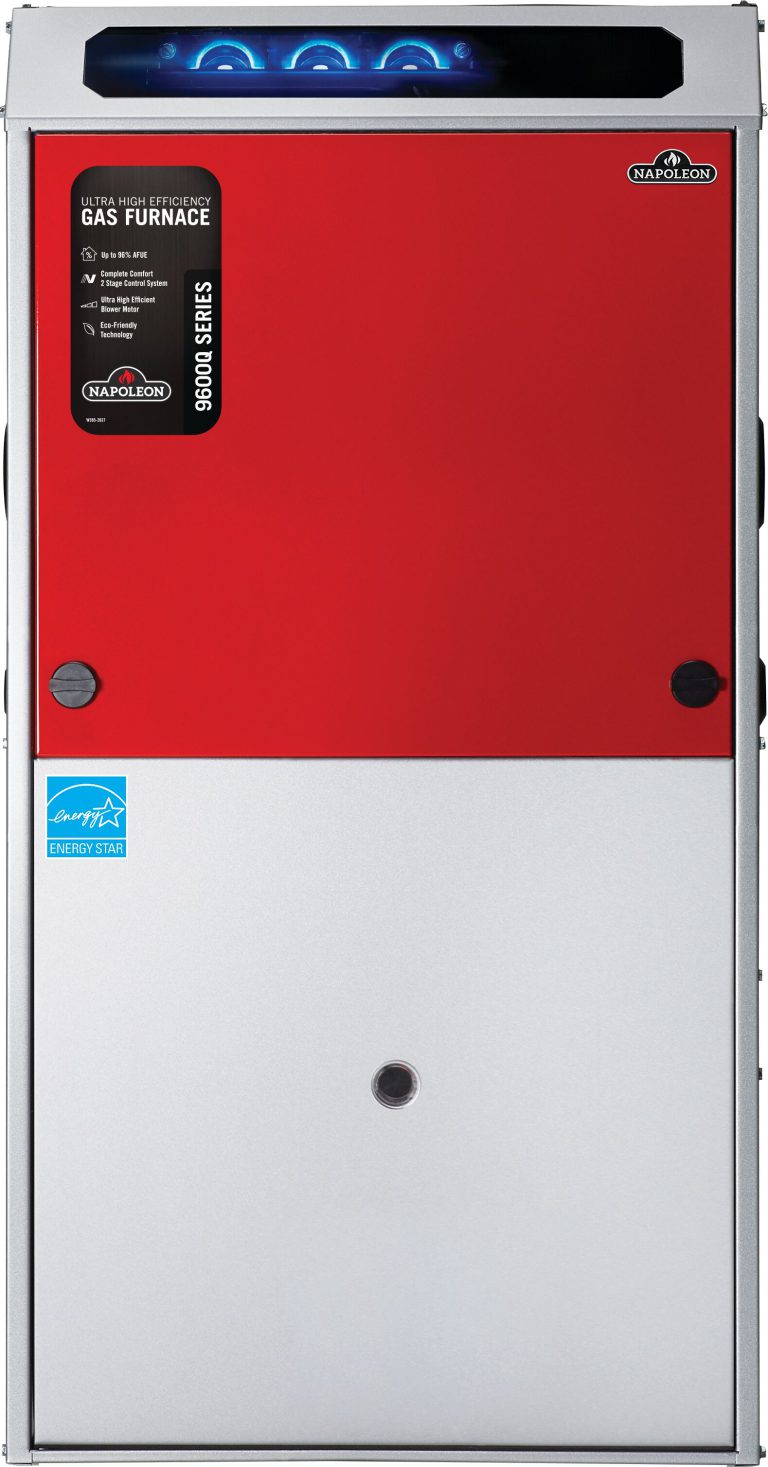
Calculating Potential Cost Savings
Determine Your Energy Costs
The first step is to determine how much you are currently spending on energy costs for your home heating and cooling systems. Look through past utility bills or contact your local utility company for assistance in getting this information. Once you have this information, you will be able to compare it against your estimated energy costs with a heat pump.
Empty heading
Calculate Potential Savings
Now that you have estimated what your current energy costs are as well as what they would be with a new heat pump system, subtract the two figures to determine how much money you could save by investing in the new system. For example, if your current annual energy bill is $2,000 and switching to the new system would bring it down to $1,500 annually, then the potential savings would be $500 per year or more depending on usage and other factors.
Heat pumps offer numerous benefits for both saving money on energy costs and reducing emissions from climate change gases. By calculating potential cost savings ahead of time, you can make an informed decision about whether investing in a home heat pump system is right for you and your family!
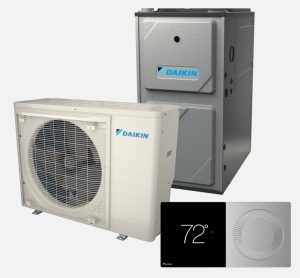
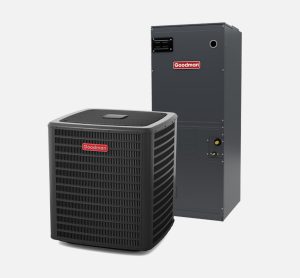
Rebates, Grants and Tax Credits
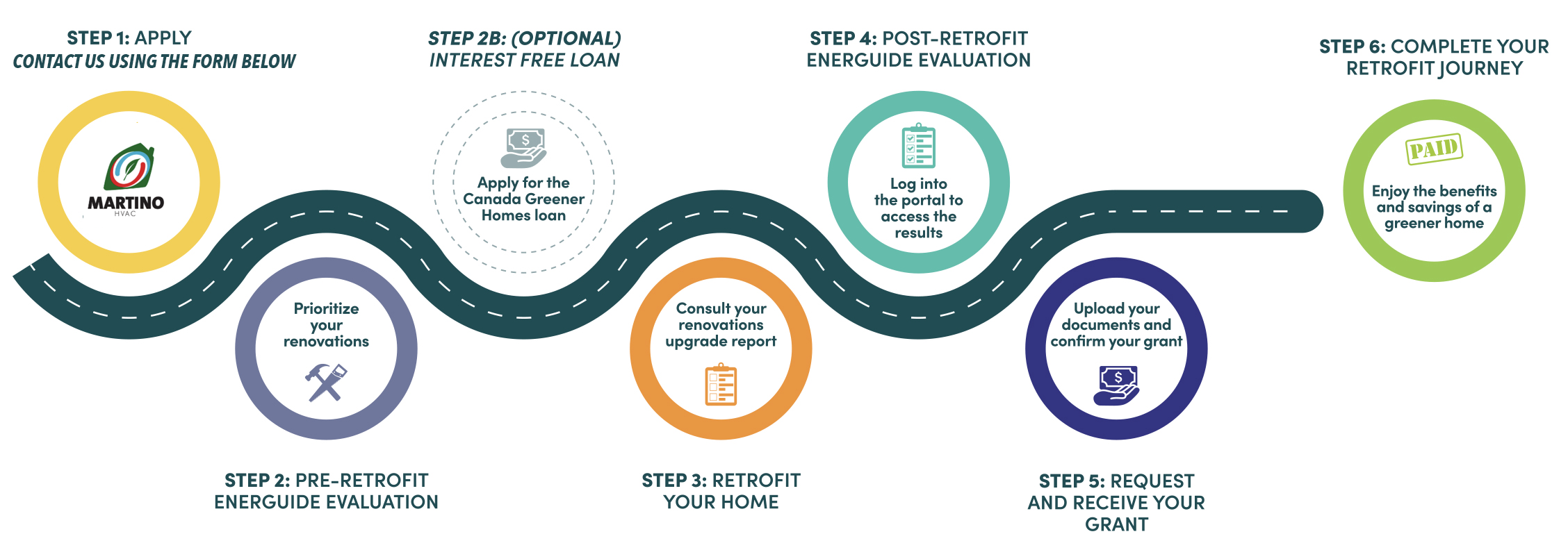
When installing a new home heat pump system, homeowners may be eligible to receive rebates and tax credits from federal, provincial and local governments. You can receive up to $6500 in rebates and 0% financing through the Greener Homes Grant. These incentives can help you save money on the purchase and installation of your new system and make it more affordable in the long run.
Empty headin
Empty heading
Apply for Incentives
Once you have determined which incentives apply to you, apply for them as soon as possible to ensure you are able to take advantage of any potential savings. Most programs have an application process with documentation requirements such as proof of purchase or energy usage history. Be prepared to provide this information when submitting your application so that everything goes smoothly.
Investing in a home heat pump system can be beneficial in numerous ways, especially when taking into account any potential savings from rebates or tax credits offered by governments and utility companies. By researching available incentives ahead of time and calculating estimated savings, homeowners can make an informed decision about whether investing in a home heat pump system is the right choice for them!
Contact us for a free estimate

